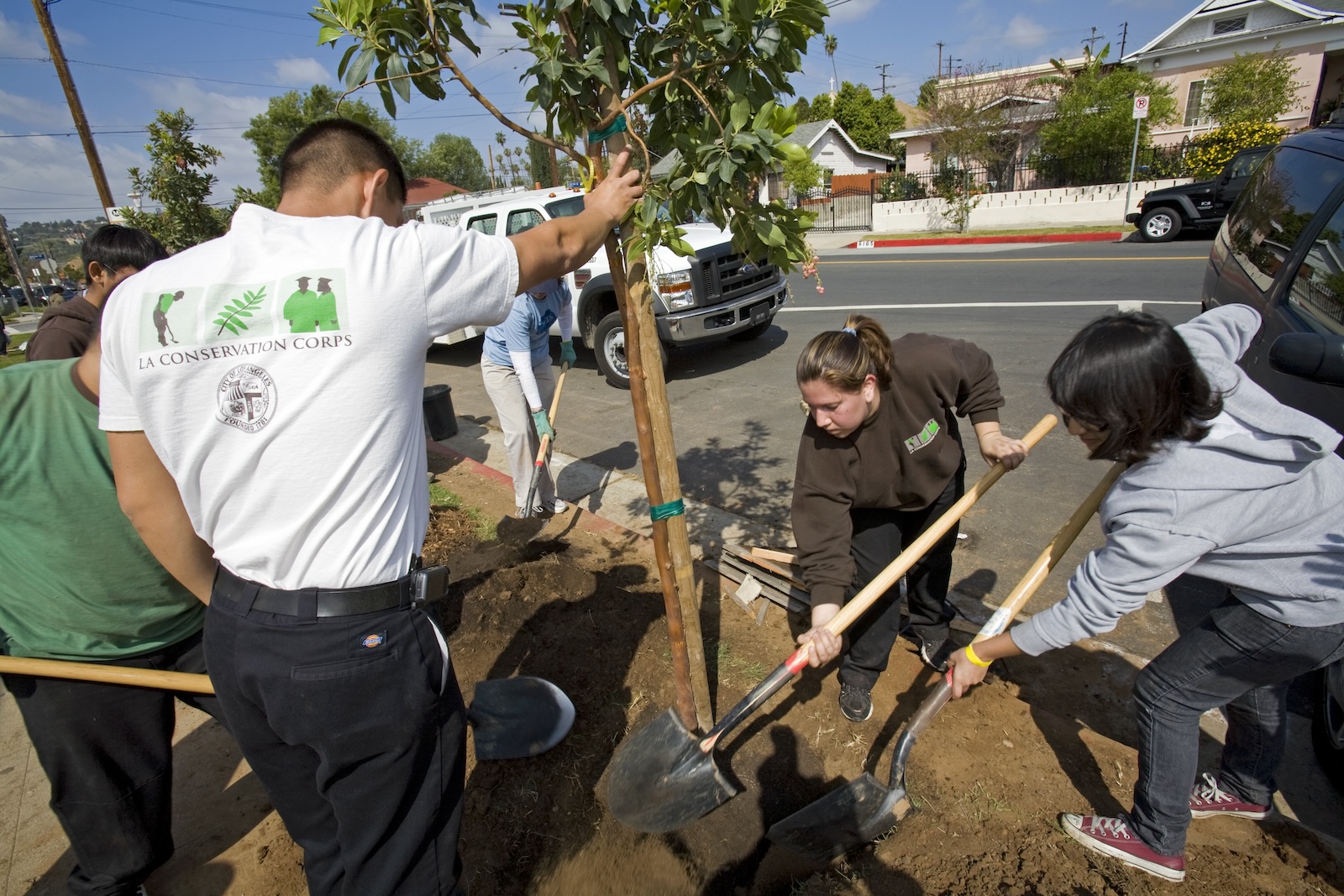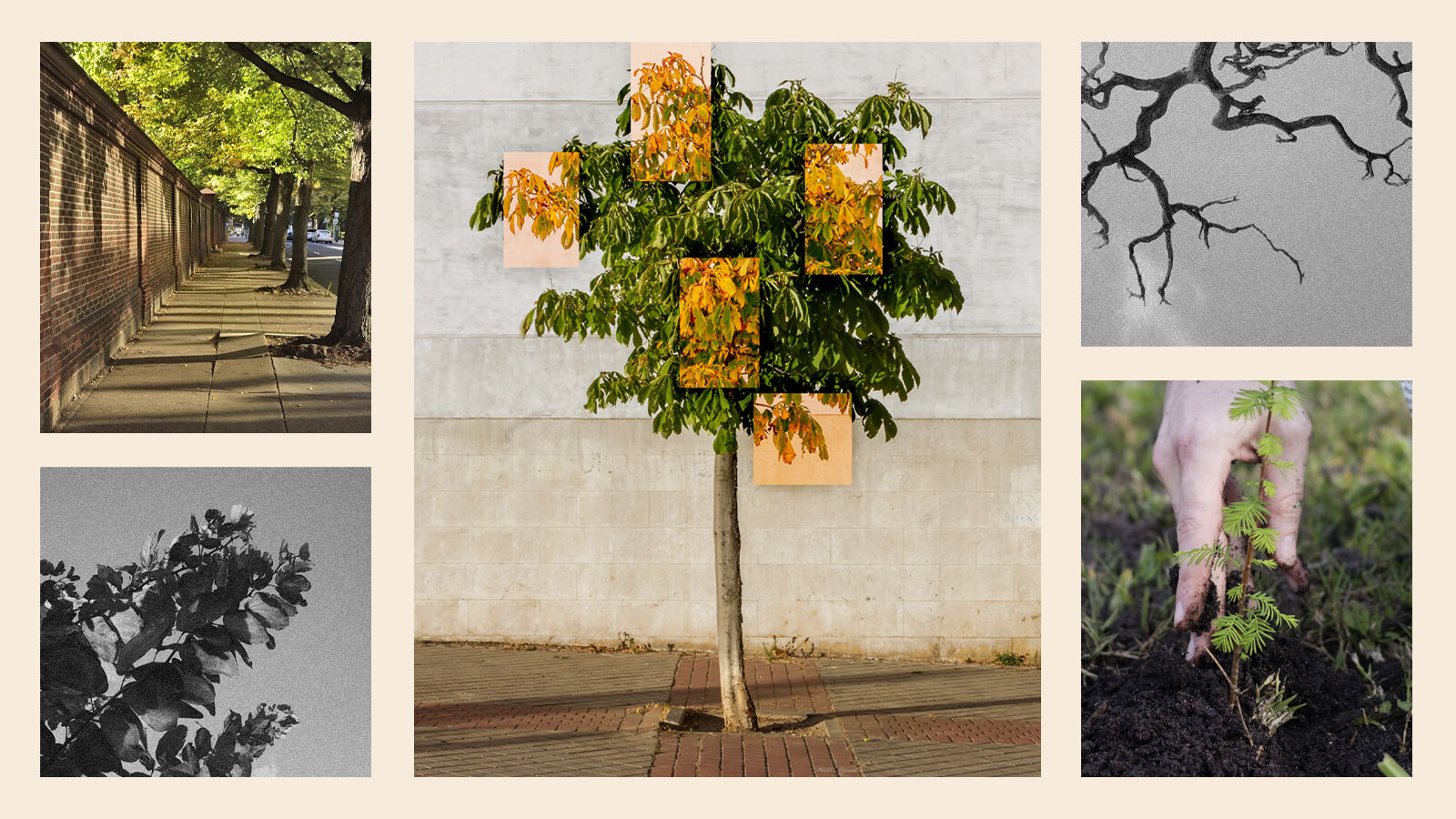A sudden surge in tree planting across New Orleans has come to an even more sudden halt.
When President Donald Trump issued a series of orders that froze billions of dollars in federal climate funding late last month, he also slammed the brakes on the most ambitious replanting initiative in New Orleans since Hurricane Katrina wiped out more than 200,000 trees across the city. The blocked funding could also spell the end of the nonprofit group spearheading the restoration of New Orleans’ tree canopy, which has suffered an almost 30 percent decrease over the past 20 years.
“Overnight, our operations were paralyzed,” said Susannah Burley, executive director of Sustaining Our Urban Landscape, also known as SOUL Nola. “We can’t afford to wait this out. We only have enough funding to keep operating until mid-April.”
Former President Joe Biden’s signature climate law, the Inflation Reduction Act, earmarked $1.5 billion for urban and community-based forestry initiatives across the nation, an amount the U.S. Forest Service called an “historic level of investment.” The money was directed to hundreds of nonprofits, schools and city and state governments. A large share of the funding is now in doubt.
The IRA had budgeted $3.5 million to support a sharp rise in SOUL’s city-wide planting efforts, amounting to 80 percent of the group’s budget over the next five years. SOUL had been ramping up operations when Trump’s orders ground everything to a halt.
SOUL was adding staff, increasing the number of volunteer planting events and had set a goal of nearly doubling its output to about 3,000 trees per year. The IRA funding was passing to SOUL via the Arbor Day Foundation, which allocated $1 million, and the New Orleans Office of Resilience and Sustainability, which planned to give SOUL $2.5 million to help the city meet climate action goals that rely heavily on trees and other carbon offsets to reach net-zero carbon emissions by 2050.
Federal judges have in recent days ordered the Trump administration to unfreeze the IRA and other federal funding. But the administration is digging in, refusing to release the pent-up funds and triggering what many legal experts are calling a constitutional crisis.
Trump has derided the IRA, which was approved by Congress in late 2022, as a “green new scam” that the country can ill afford. His decision to put an immediate hold on disbursements has thrown many nonprofits into crisis. Some groups are worried about having to lay off staff, cancel contracts, delay projects or close down entirely.
Burley had to nix a $20,000 order with a North Shore tree farm and contract with a delivery company. She also had to take back a job offer and put a hold on a new position she planned to advertise in the coming weeks. SOUL’s four remaining staff jobs are on shaky ground.
“It took me eight years to build the team we have, and they’re impeccable at what they do,” Burley said. “If I lost them because I had to put them on furlough, I can’t start over. I’m too old, too tired. I don’t have the energy or the flexibility in my life to rebuild SOUL.”
New Orleans’ lack of trees makes the city less able to cope with heavier rainfall, rising temperatures and other challenges from climate change. Trees offer shade, reducing ambient air temperatures and air conditioning costs. They also lower flood risk by absorbing water and altering the soil, making it more spongy. That’s crucial for a city shaped like a bowl, where more than half its area sits below sea level.
The monumental task of replanting the city has fallen largely on nonprofits like SOUL and the NOLA Tree Project. The groups, which depend on volunteer labor and donations, have together planted more than 80,000 trees since Katrina, but the city’s tree canopy isn’t nearly what it was before 2005 and doesn’t come close to comparable cities.
“New Orleans has one of the lowest tree canopy coverage rates in the country,” said Chris Potter, a former NASA scientist who uses satellite imagery to study urban development. “It’s a special case because of all the floods and hurricanes and particularly the Katrina impact.”
New Orleans’ tree coverage ranked last among 10 comparable cities in the South, according to a report SOUL produced for the city in 2022. While most of the cities, including Atlanta, Memphis, Tenn. and Jacksonville, Fla., had tree coverage of more than 30 percent, New Orleans’ coverage was only 18 percent.
Remove two unusually large wooded areas in New Orleans — City Park and Bayou Sauvage Urban National Wildlife Refuge — and the coverage rate falls to about 10 percent. The park and Bayou Sauvage, one of the country’s largest urban refuges, do little to reduce heat and flooding in other parts of the city, especially the many neighborhoods that were subjected to discriminatory, race-based housing practices, according to Burley.
“The neighborhoods that were historically redlined are often more flood-prone, hotter and they have less trees,” she said.
SOUL has focused most of its efforts on low-income neighborhoods. The group had planned to finish planting the Lower 9th Ward and much of Gentilly, and were getting ready for a big push in Hollygrove. All three areas are majority Black and have large numbers of low-income residents. The Lower 9th, for instance, is 90 percent Black and has an average household income of $49,000 — less than half the U.S. average, according to the Data Center.
Alex Dunn, president of the Algiers Riverview Association, credited SOUL with “completely transforming the canopy and aesthetics” of his neighborhood.
“They do this work more efficiently and cost-effectively than the city or its contractors ever could,” he said. “Losing SOUL would be a major setback for our city.”
Some supporters have offered donations, but Burley said the group’s needs are likely beyond the scope of New Orleans alone.
“We have only one Fortune 500 company and Entergy already gives to us,” she said of the New Orleans-based power company.
Instead, SOUL has urged supporters to lobby Louisiana’s mostly Republican congressional delegation and Gov. Jeff Landry, who could, in turn, push the Trump administration to restore IRA funding.
Burley knows it was risky to tie so much of SOUL’s growth to one federal source.
“I put all our eggs in one basket, and that’s never wise,” she said. “But we’ve never had the chance to have funding at that level before. We had to try because we could have done so much good with it.”
This story was originally published by Grist with the headline Another casualty of Trump’s funding freeze: New Orleans’ tree canopy on Feb 13, 2025.
A program was trying to mitigate the loss of 200,000 trees to Hurricane Katrina. Cities, Climate, Politics Grist







